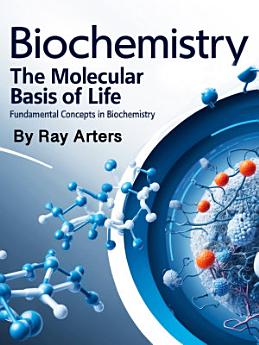Biochemistry: The Molecular Basis of Life – Fundamental Concepts in Biochemistry
About this ebook
The story of biochemistry begins with carbon, the versatile element that forms the backbone of all organic molecules. Carbon's unique ability to form four stable covalent bonds allows it to create an almost infinite variety of molecular structures. These carbon-based molecules, combined with hydrogen, oxygen, nitrogen, phosphorus, and sulfur, form the primary building blocks of life. This select group of elements, often remembered by the acronym CHNOPS, comprises over 95% of the mass of most living organisms.
Water, though seemingly simple with its H2O formula, plays an indispensable role in biochemical processes. Its polar nature allows it to dissolve a vast array of biological molecules, earning it the title of the "universal solvent." The hydrogen bonds formed between water molecules create unique properties such as cohesion, adhesion, and high specific heat capacity. These characteristics enable water to moderate temperature changes in living systems, transport nutrients and waste products, and provide the medium in which most biochemical reactions occur.







